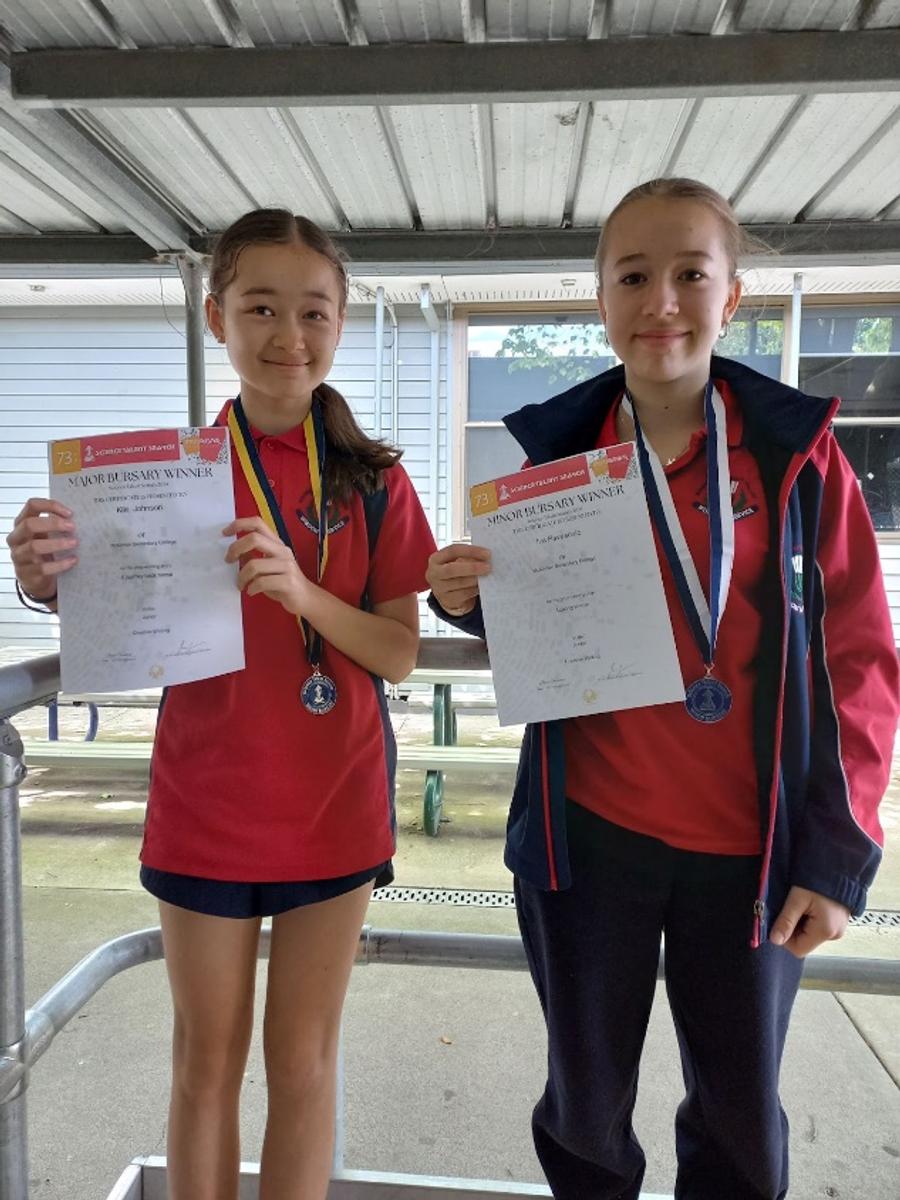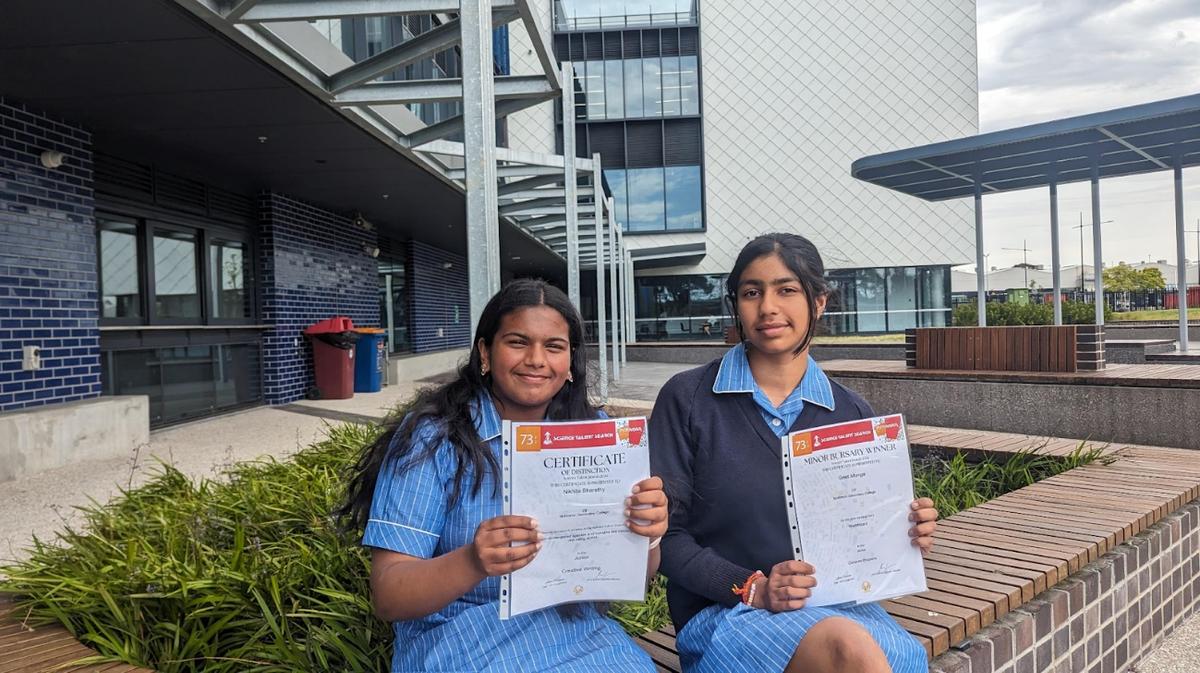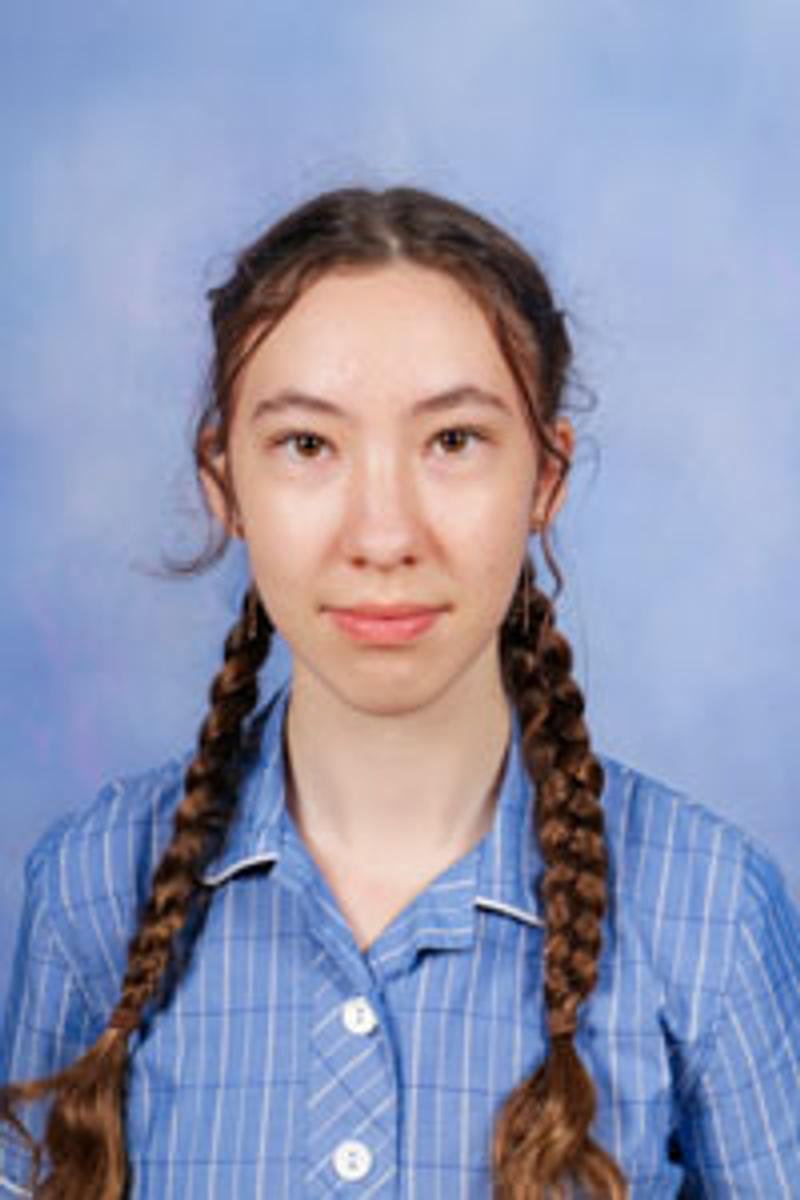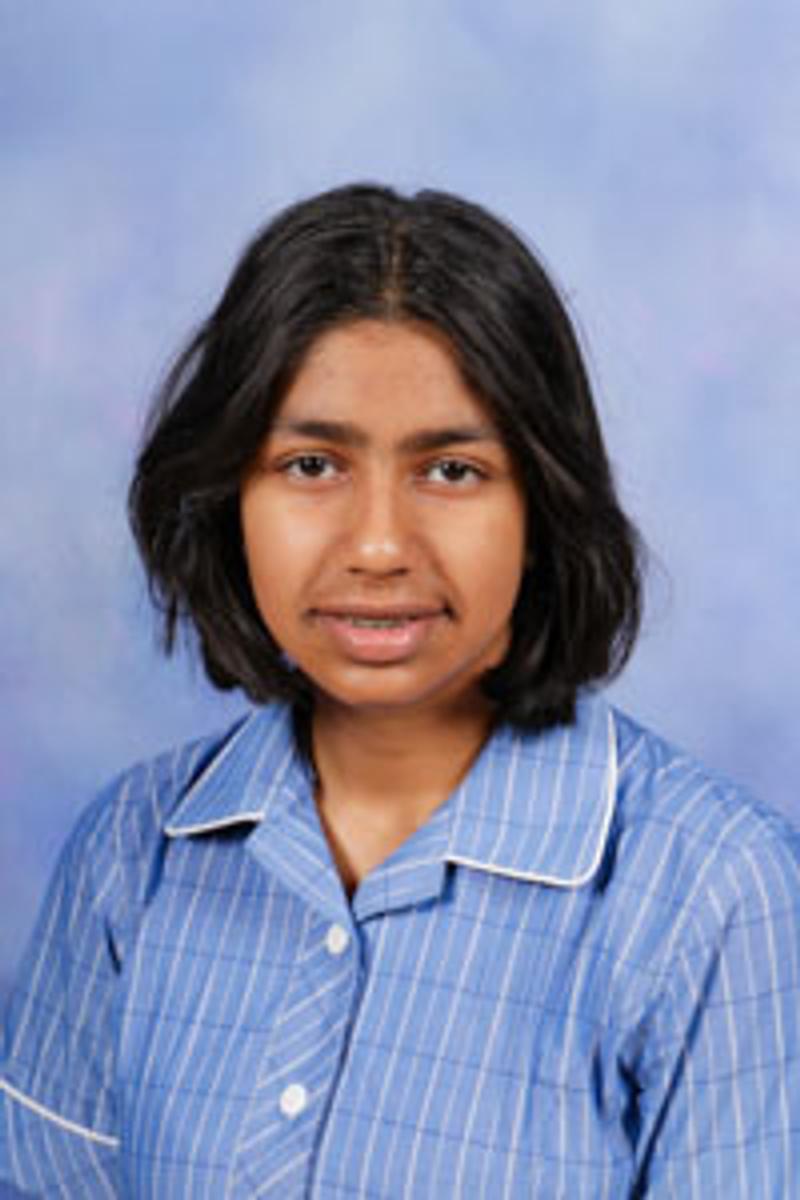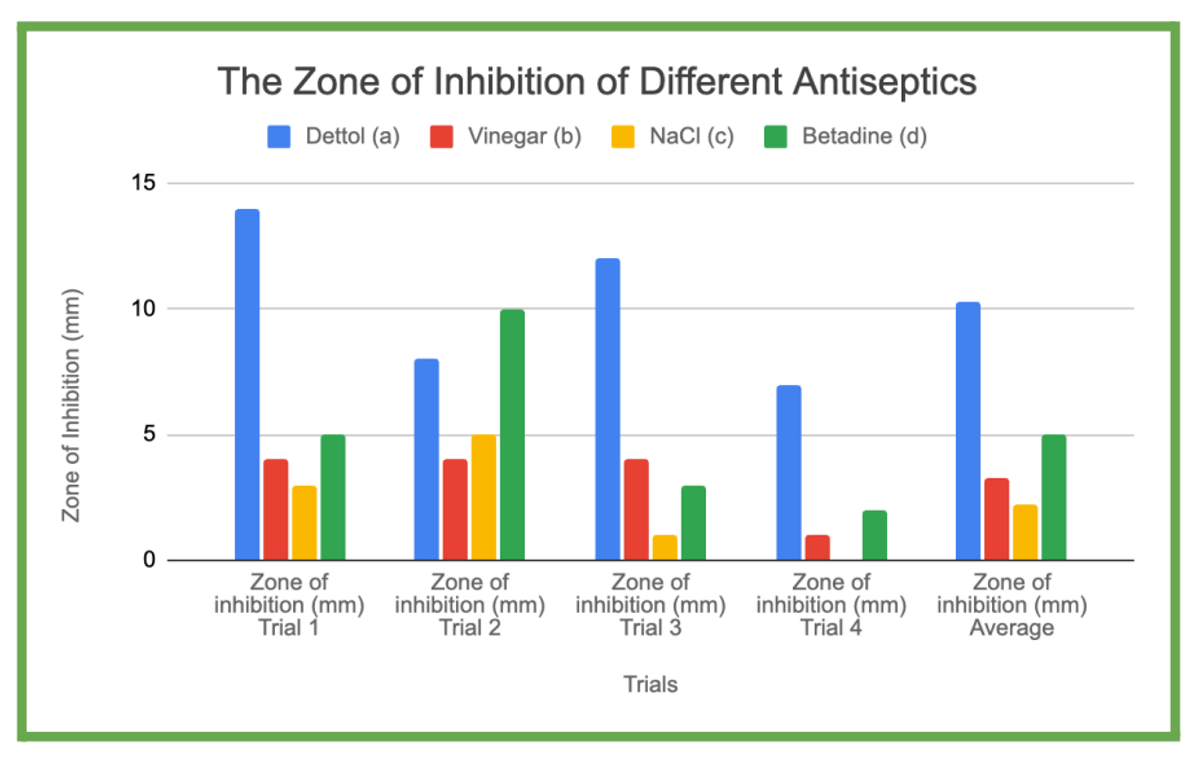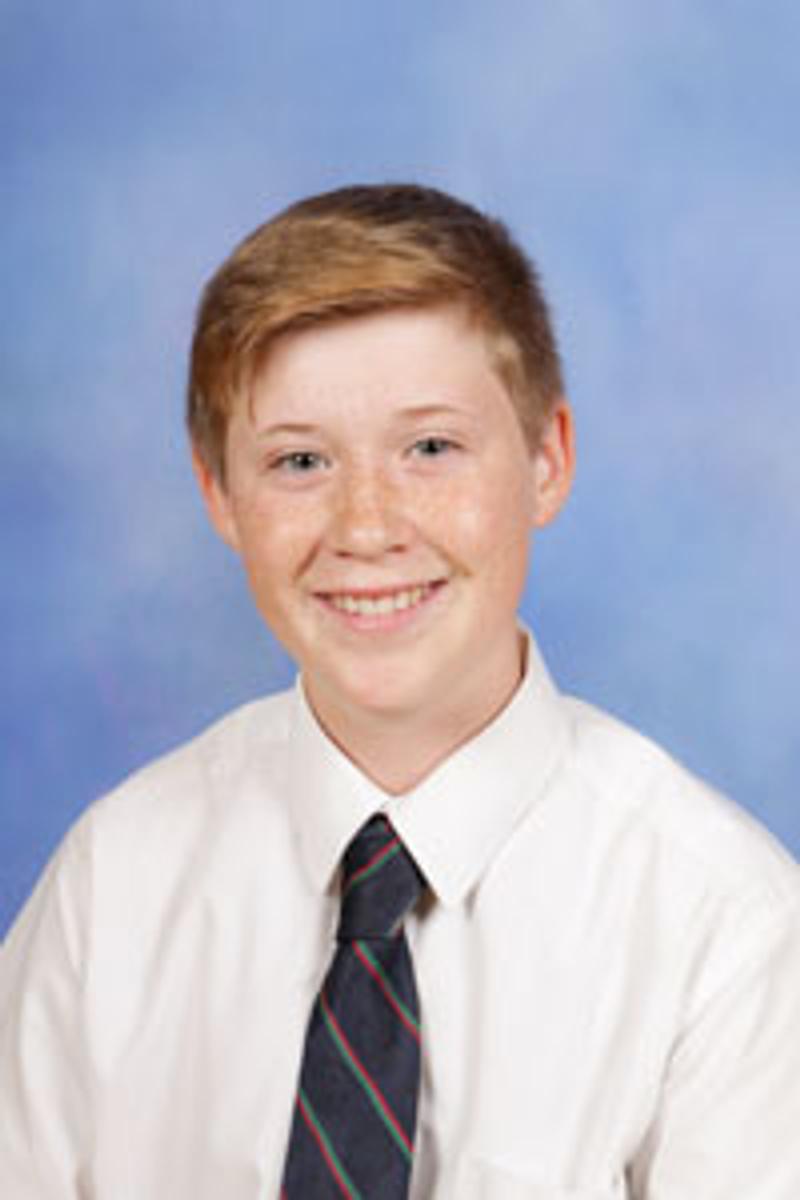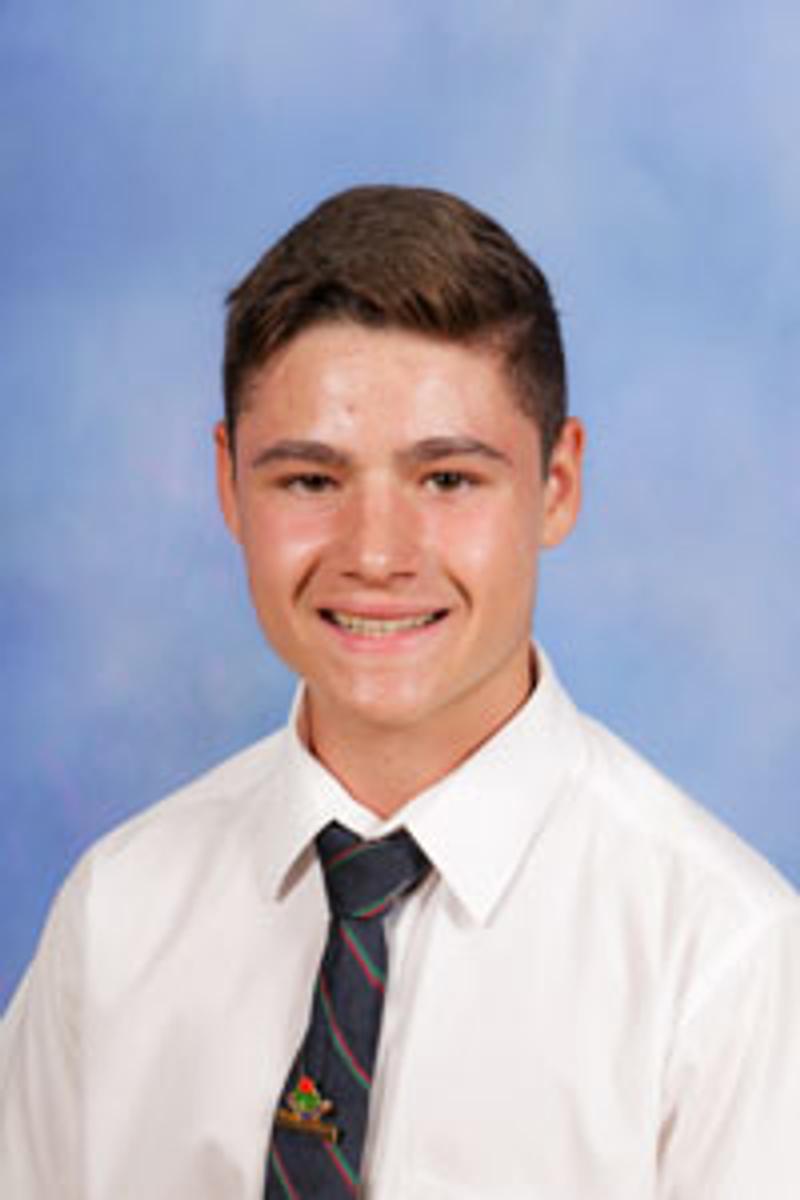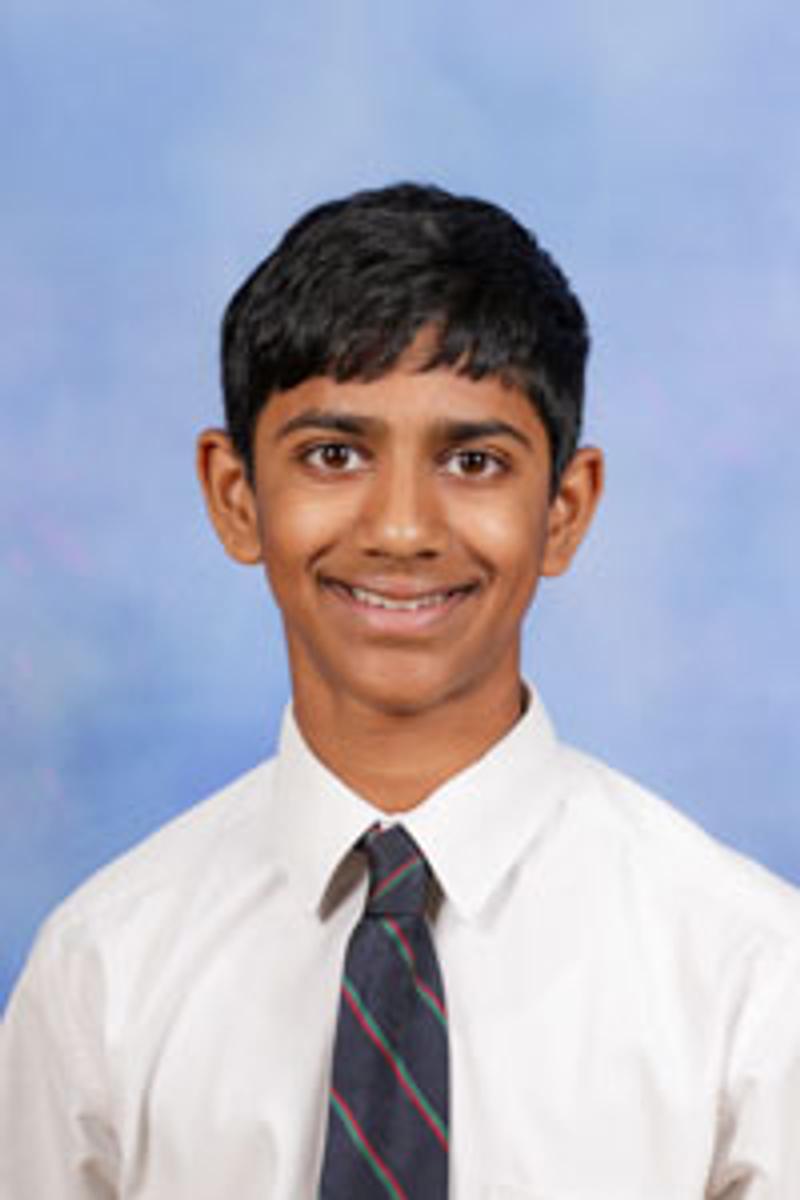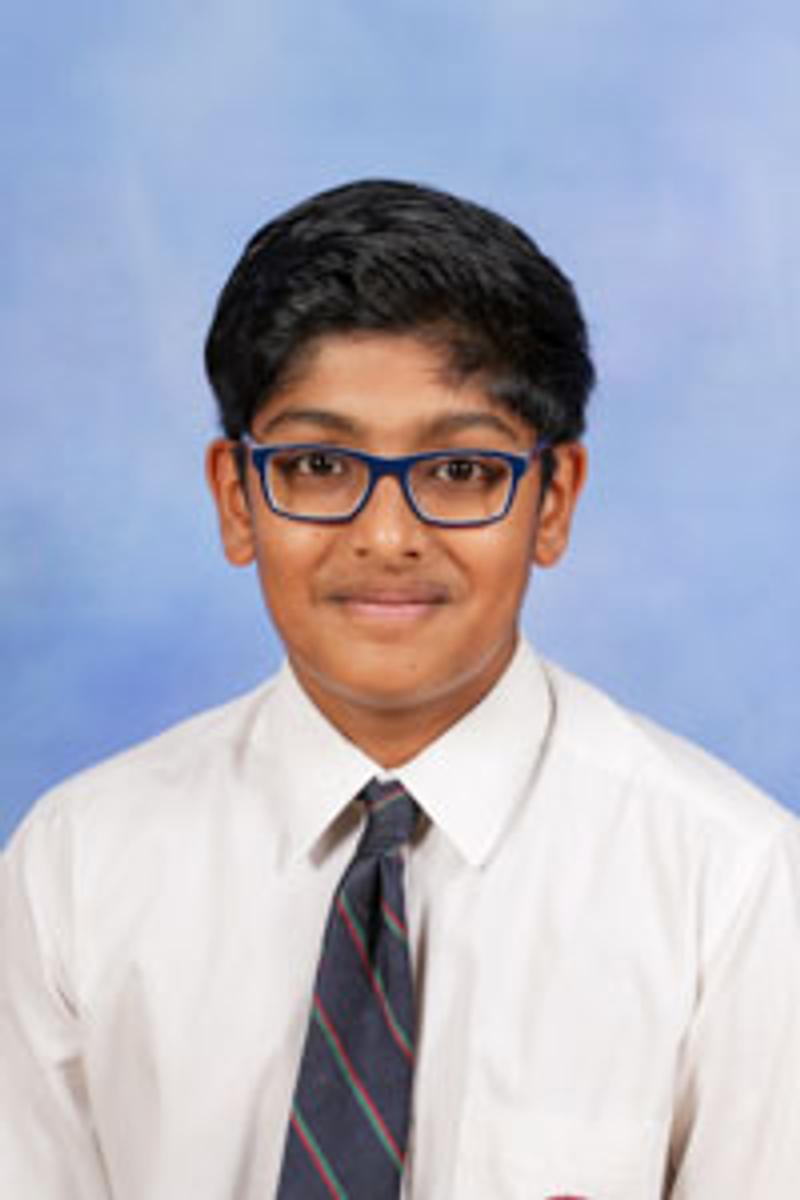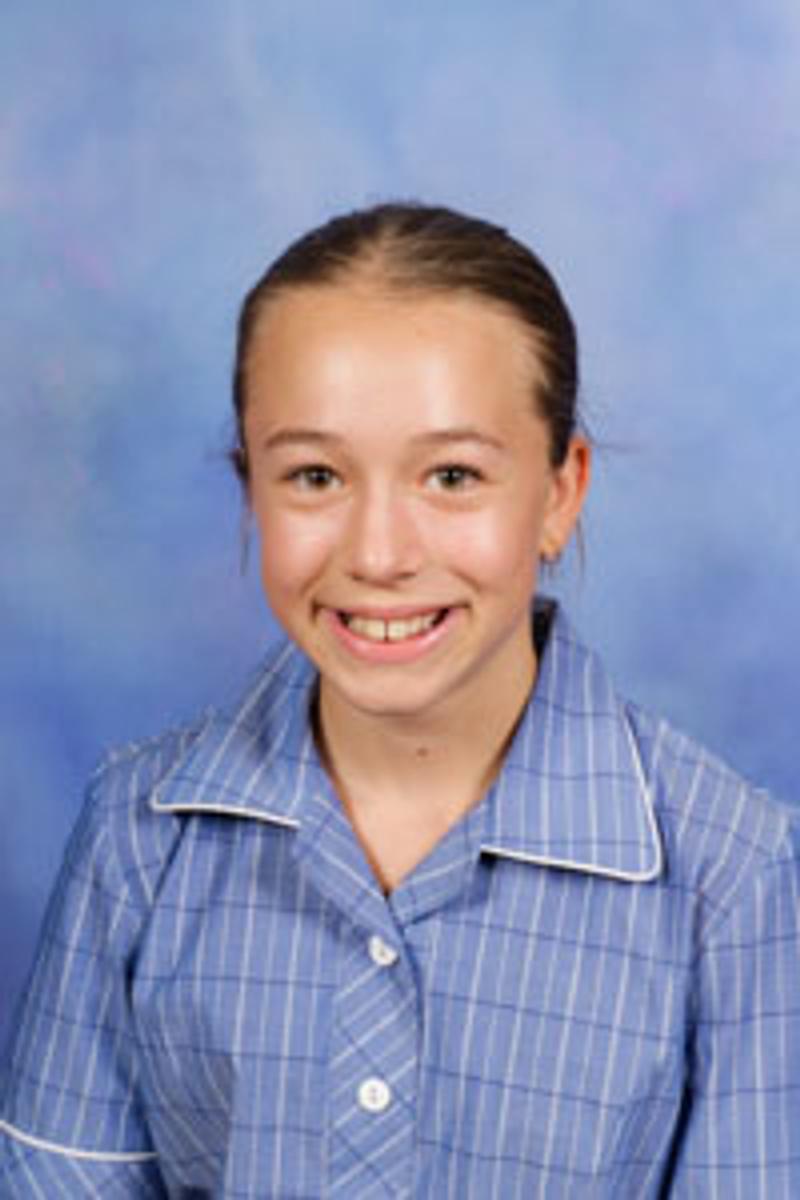SCIENCE
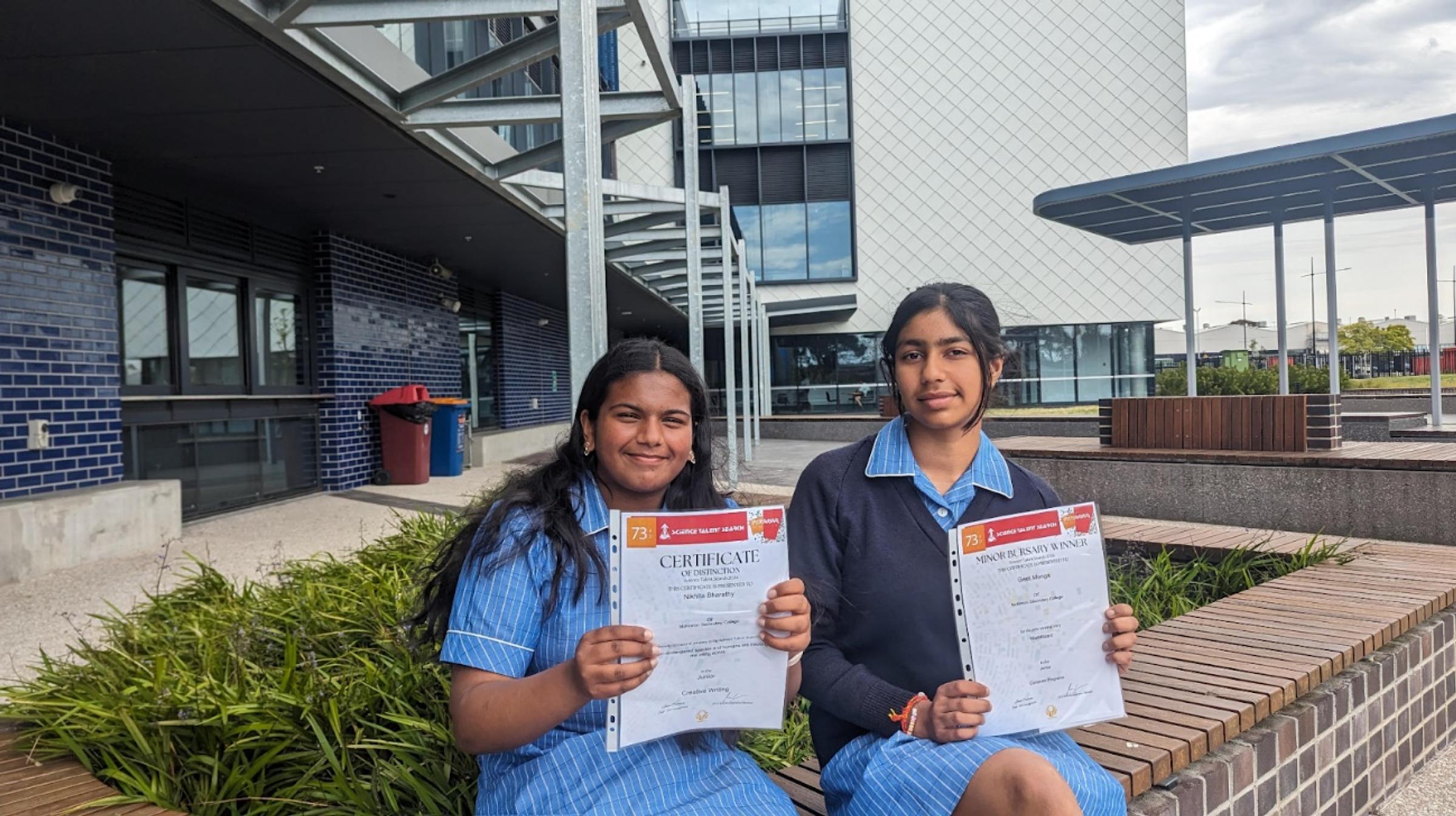
GREAT SUCCESS AT THE 2024 SCIENCE TALENT SEARCH COMPETITION
McKinnon students have been recognised with a multitude of awards in this year's Science Talent Search competition.
Science Talent Search is an annual science competition open to all primary and secondary students in Victoria. Twenty-four McKinnon students, from Years 7 to 12, submitted their original projects to the competition. Of these talented students, sixteen achieved a distinction or higher. Fourteen students were awarded medals and financial bursaries.
The students complete all of the work, which was in addition to their regular classwork, for these projects in their own time.
We thank their teachers, especially Ms Jacqueline Flynn and Ms Cherie Marks, and their parents/guardians for the great support given to the students during the project period.
The students who achieved distinctions and bursaries are listed below:
Creative Writing: Junior Section
Year 7
Kiki Johnson: A major bursary and gold medal awarded for the story ‘A Journey Back Home’.
Iva Pavasovic: A minor bursary and silver medal awarded for the story ‘Losing Home’.
Year 8
Nikhita Bharathy: A distinction awarded for the story ‘I am an endangered species and humans are tracking me using eDNA’.
Computer Programming: Junior Section
Year 8
Geet Monga: A minor bursary and silver medal awarded for creating the program ‘Watt Wizard’.
Experimental Research: Intermediate Section
Year 9
Mateo Capurro Martinez: A minor bursary and silver medal awarded for the experiment ‘Is Social Media Affecting High School students’ Susceptibility to Gambling? An Interview Study on McKinnon Secondary College Students’.
Eliana Zymaris: A distinction awarded for the experiment ‘The Influence of Age on the Emotional Brain’.
Eden Sullivan and Linh Nguyen: A minor bursary and silver medal awarded for the experiment ‘How varied time periods affect cone cells to change the lasting effect of the afterimage left on the retina’.
Bella Chanysheva and Anushka Sujeet: A minor bursary and silver medal awarded for the experiment, ‘What is the Bouba-Kiki Effect?’
Clementine Hull andIsabella Dekarta: A minor bursary and silver medal awarded for the experiment, ‘The Effect of Soil Compaction on the Growth of Taraxacum offinale’.
Charlie Robbie and Alexandru Virbanescu: A minor bursary and silver medal awarded for the experiment ‘Testing the Efficacy of Different Disinfectants on the Bacteria Grown in Petri dishes’.
Aarush Panuganti and Hanon Abraham: A distinction awarded for the experiment ‘Which Engine is More Efficient?’
Below are snippets from some of the award-winning projects.
Ms Thérèse Sweeney and Dr Barry Fleming
Science Talent Search organisers
Excerpt from the gold medal winning story, ‘A Journey Back Home’:
I am not familiar with anything in the room. This place doesn’t seem like somewhere I’d like to visit. “You’ll be okay little turtle” A tall woman with a stethoscope says. I never really trusted humans, because sometimes they throw huge nets around my home and my friends……….
Kiki Johnson, Year 7
Abstract excerpt from the silver medal winning experiment, ‘What is the Bouba-Kiki Effect?’
……During this experiment, five willing volunteers were presented with a total of 20 flashcards each. The flash cards were a mix of sharp angular shapes and rounded, curved shapes. During viewing the flashcards the volunteers were presented with the option of the sounds “bouba” or “kiki” so the volunteer could associate a sound to each shape shown. Our overall evidence seemed to point strongly to the word “bouba” eliciting an image of a rounded object with curved sides and the word “kiki” being associated more strongly with sharp and angular shapes………
Bella Chanysheva, Year 9 and Anushka Sujeet, Year 9
The program intention for the silver medal winning computer program ‘Watt Wizard’:
My program intends to teach Year 10s of VCE physics students about the science related to the electricity power generation using transformers and transmission lines in a playful and relatable manner…….
The first concept examined by my program is that AC power supply induces voltage in the primary coil of a step-up transformer whereas the DC power supply is unable to induce any voltage. Hence the program user can interpret that only AC power supply can be used to generate electricity in transformers and transmission lines……
Geet Monga, Year 8
Data excerpt from the silver medal award winning experiment ‘Testing the Efficacy of Different Disinfectants on the Bacteria Grown in Petri dishes’.
Charlie Robbie, Year 9 and Alexandru Virbanescu, Year 9
Excerpt from the discussion section of the distinction winning report: ‘Which Engine is More Efficient?’
The results show that the electric motor performed better than the air engine in all the tests conducted. In the performance under stress test, on average, the electric motor was able to pull the weights up 2.76 seconds quicker than the air engine. Apart from this, in every trial performed, the electric motor pulled the weights up quicker than the air engine. In the speed and acceleration test, it came as no surprise that the electric motor was able to curl the tape up quicker than the air engine…….
Aarush Panuganti, Year 9 and Hanon Abraham, Year 9
Excerpt from the silver medal winning story, ‘Losing Home’:
I am a giant panda, a species facing extinction, and environmental loss. Each day, each hour, humans destroy my forest, my canopy, my home. My lush, colourful Broadleaf forest where I reside and live my whole life. The forest is a blaring, earthy, nurturing habitation. It is my food source, my bed, my playground. The broadleaf forest is much more than meets the eye. I need my forest, as much as you need your home.
Iva Pavasovic, Year 7

